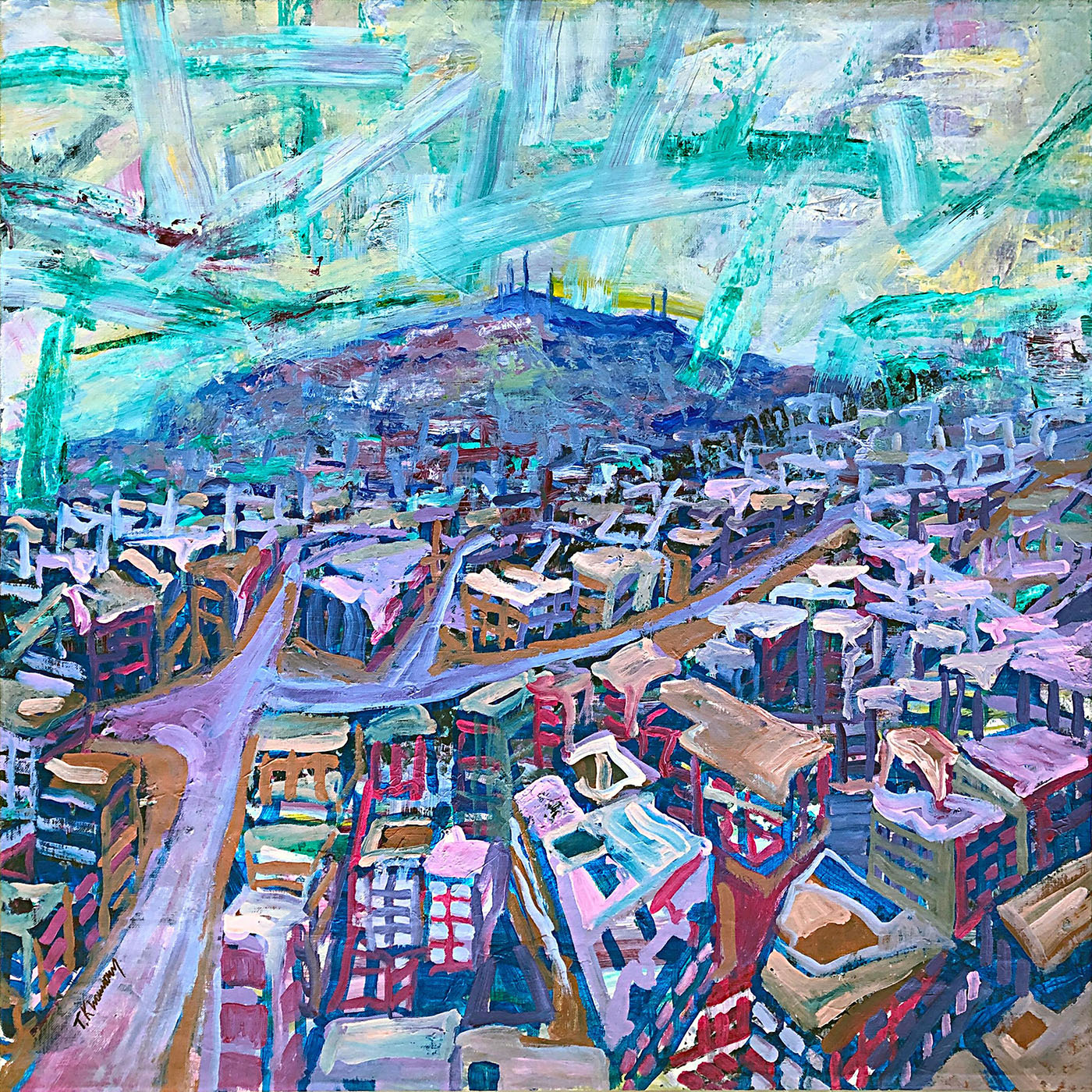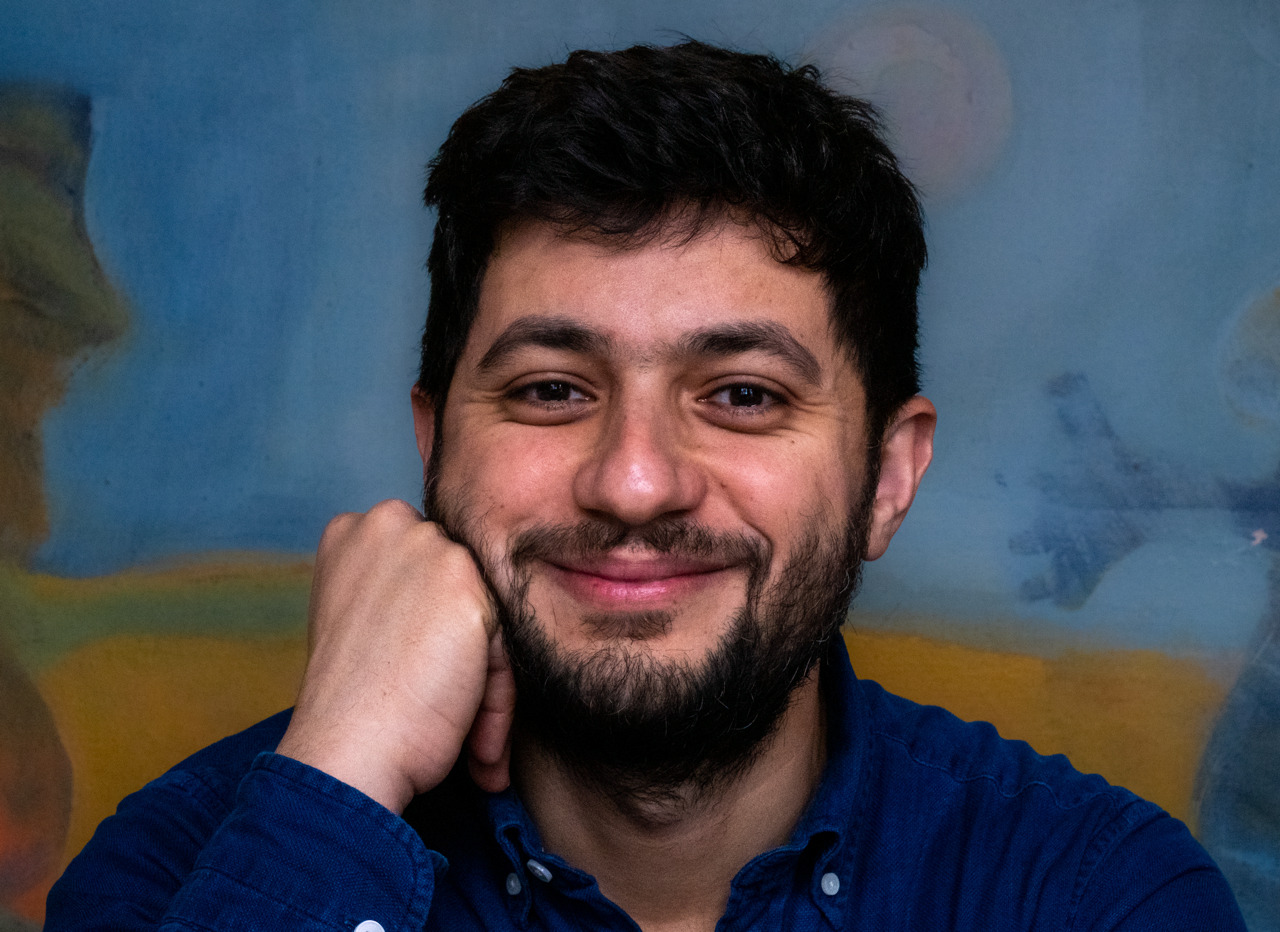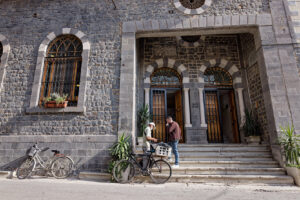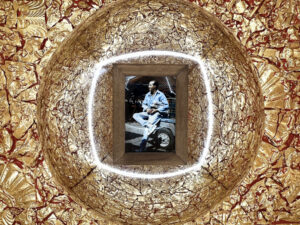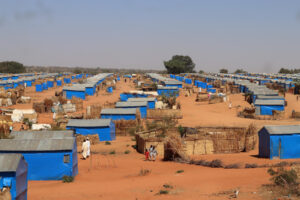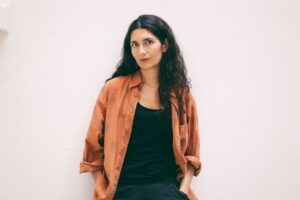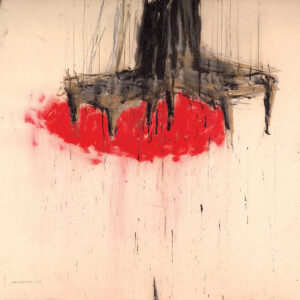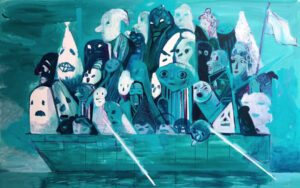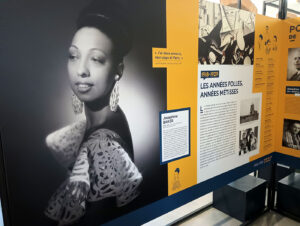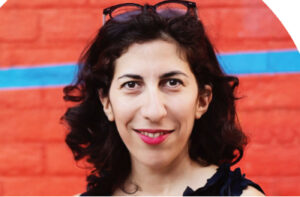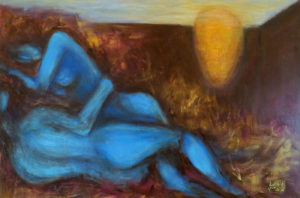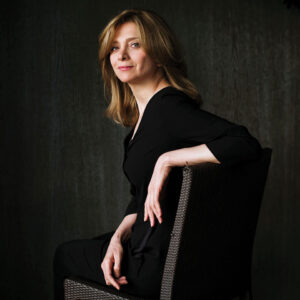Suad Aldarra’s memoir I Don’t Want to Talk About Home is the story of a life shaped by the war in Syria. It is a story of migration, (be)longing, displacement and exile; a story of Syrian life that exists beyond the headlines and numbers reported in the newspapers.
I Don’t Want to talk About Home, by Suad Aldarra
Doubleday 2022
ISBN 9781529177138
Ammar Azzouz
The book opens with Aldarra’s childhood in Saudi Arabia where she was born to Syrian parents, who, like many Syrians, had migrated to the Gulf countries years before the war began. Aldarra remembers her school days, how her search for connection and friendship was always marked by the struggle of feeling like an outsider, enveloped by a sense of silence, solitude, and loneliness. In the first week at the intermediate level school, the administrator asks foreign students to raise their hands. When Aldarra doesn’t respond he asks: “Suad, why aren’t you raising your hand?”
She replies with incredulity: “I am not a foreigner.” The administrator asks if she’s Saudi, and Aldarra says no. “Then you are a foreigner.”
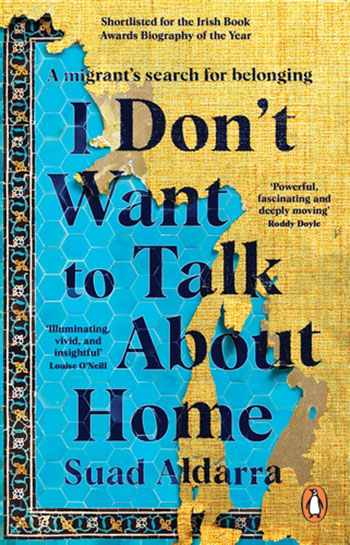
It is a perfect encapsulation of Aldarra’s youthful estrangement and the consistent reminder of her outsider status in ways both big and small. Things are also difficult at home: the older she gets, the stricter her family becomes, creating a stranglehold of rules meant to keep her aware of her place as a girl: “no laughing out loud, no running, no questions or objections. Your brothers are your guardians now.” Her outsider status is further compounded during secondary school. There, she is ostracized not only because she isn’t Saudi, but also for belonging to a different social class than her friends at school. “The party invitations became less frequent, as if my classmates had suddenly discovered the truth that we weren’t the same species. I did not live in a mansion, nor did I have a personal driver with a luxurious car.”
In this landscape of solitude, Aldarra keeps searching for her passion, which she finds in books. Her mother brings her gifts of books, and then her friend Raya introduces her to classic foreign literature translated into Arabic. This passion for reading later grows into a love of writing, which she continues to affirm as a space for shelter, refuge and belonging.
To escape her loneliness at school, Aldarra joins a group of teenage girls studying the Quran and exploring various ways to steer themselves to the “right path.” She describes these gatherings sensitively, including a ceremony at the end of the academic year, in which, among several other activities, there is an announcement of names of girls who decided to commit to wearing hijab. Though Aldarra hadn’t planned to announce her own name, one of her friends pressures her into it. “Nora kept insisting, and I kept sweating,” she writes. Finally, feeling a sense of guilt and shame and not wishing to be judged as veering from “the right path,” Aldarra caves. She dons a hijab despite not having intended to. “It took me a couple of years,” she writes, “to realize I was not happy in the religious group.”
I carry my troubled homeland within me; I hide it like a crime.
There are many things that make Aldarra’s memoir fascinating. One of them is the way she writes about Damascus. From her earliest years in Saudi Arabia, she yearns for Damascus, and in her memoir she turns the city into a living character. This love sings from the pages, in the image of a city full of sounds, colors and beauty. Though she visits Damascus with her family in the summertime, she longs to see it in winter. She watches Syria through the TV screen from her home in Riyadh. “I escaped my life in Saudi Arabia through Syrian TV dramas,” she writes. And while the TV becomes a small window that allows her to live an imagined life in Damascus, it doesn’t mitigate the pain of longing:
I walked with the actors around Damascus’s neighborhoods, and learned more about my peoples’ culture. I wept secretly after the end of each series, frustrated that I wasn’t in Syria like my brother. I could not walk in the rain, or sleep at my grandparents’ house, I could not ride a bus on my own or listen to music on the radio.
The internet also provides a form of escape: both from her life and to Damascus. Her family gets a computer in the early days of the internet (insisting on keeping it in the living room as a way to control what is being surfed) and Aldarra begins online chatting with the outside world. But her parent’s strict outlook makes things very difficult. Aldarra writes openly about the hard relationship with her father, of his control, angry outbursts, fights, and constant disapproval. “On several occasions,” she recounts, “my father cut the internet cable using the kitchen knife, but he would replace it a few days later when he calmed down.”
From the computer desk in Riyadh, Aldarra goes online in search of Syria. Her writing is at most beautiful and tender as she recounts that love of place from the perspective of a Syrian child and teenager who grew up outside Syria, but longed for it from afar. As someone who was born and raised in Syria, I used to see Syrians who come back every summer from more conservative countries such as Qatar and Saudi Arabia. At the time, I felt they belonged to a different culture as many of them would be living in environments more religious than the diverse communities in Syria, though of course things have changed dramatically in these countries in the last two decades.
Damascus My Love
When she graduates school in 2003, Aldarra announces the desire to go back to Syria to earn a degree in Computer Engineering. This new beginning gets its own chapter in the memoir: she calls it, “Damascus, My Love.”
In Damascus, where her grandparents live, everything changes. Aldarra grows as a person: she makes new friends, she finally gets to explore the city for real and she curates a new self without the former restrictions of family or societal pressures. There is a beautiful illustration of a new discovered freedom and independence in these years. “By the time my parents came for their annual summer break, I was already a new person — more independent in my new environment, and dangerously independent.”
Damascus is also where Aldarra’s passion for writing is finally properly explored. There, she publishes her first article. There, too, she makes a diverse group of friends, which includes her first male friends, and her first Christian friends, who include Lara, a university student. Just as it was in Riyadh, Damascus is a window into a new, unseen world.
When I visited Lara’s house for the first time, I felt the love of her parents. I envied how understanding they were, how they hosted her group of friends of mixed genders and even accepted her having a boyfriend.
During this time of newfound freedom, Aldarra meets her own partner, Housam, whose grandfather was forced to leave Nazareth during the Israeli occupation in Palestine in 1948. Housam, too, understands the wound of an absent homeland, for neither he nor his father have ever seen Palestine.
While all of this happens before the war in Syria starts, Aldarra still has to fight a battle with her family. In the chapter entitled “War Against Love,” she recounts the difficulties of trying to convince her father to accept her relationship with Housam. “My father and I didn’t talk,” she writes, “but he occasionally sent me offensive emails about ungrateful daughters or Quran verses warning against disobeying parents.”
She stays with Housam. In the next chapter, entitled “Love Against War,” Aldarra creates a parallel between the courage required to defy her parents and the courage manifested by the entire Syrian populace, required to defy the regime. She, like them, chooses love. “I chose love over hatred. I chose unknown freedom over apparent injustice.” But beyond everything, Aldarra says, “I chose me.”
Everything is shaken: 2011 is a decisive moment in the modern history of Syria. As the Syrian revolution devolves into war, over half of the country’s population is eventually displaced, more than 300,000 people are killed, and cities and villages are destroyed in their entirety. Aldarra, does not write about the war as we see it in news headlines; rather, she writes a history from below, recounting the lives of those trying to maintain their daily lives amidst bombing, shelling, arrest and forced displacement. In one of her chapters, “Love and War,” she shows how life, albeit in the middle of war and destruction, continues somehow, despite the horrors of war, despite all the pain.
Similar to the over 6.5 million Syrians who fled Syria, Aldarra eventually flees too: to Egypt with Housam, after they are married in Damascus. Aldarra takes the readers with her to show us a glimpse of her life, to places of refuge, pain, sorrow and grief. Multiple moves are described in the memoir. After Egypt, Aldarra gets a job in Ireland. She ventures first there without her husband. Despite reaching the shores of safety and comfort of cities without war, in Ireland the pain and longing continues, as if it is a journey to search for a room of one’s own:
I threw myself on the couch and let myself have a good cry for the first time since I’d arrived in Ireland. For all the trips and travel, for all the luggage and burdens I carried with me, and for not being able to have Housam beside me at the moment. Now I had a home – a cold and empty one, but it was mine.
Yes, while the title is I Don’t Want to talk About Home, Aldarra does the opposite, creating a memoir that keeps this powerful, painful, and poetic word at its very heart.



